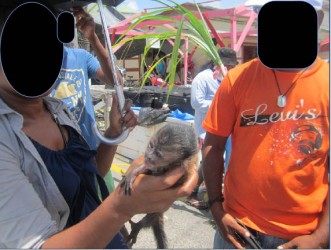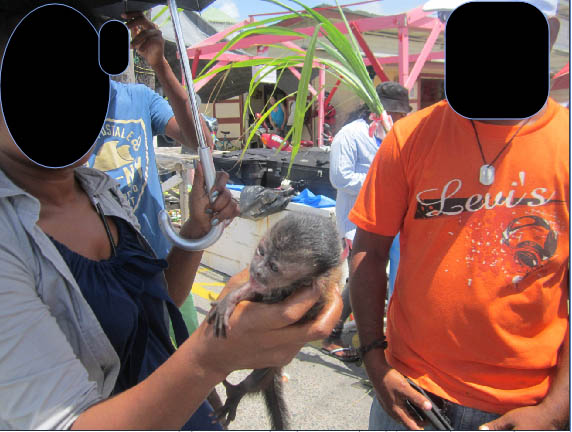Dear Editor,
Several articles have been written recently about our increasingly endangered wildlife and the need for enforcement. In a recent KN article, Wayne De Freitas, an ecotourism operator, pointed out how “for years there have been hardly any laws or regulations monitoring excessive fishing and hunting in Guyana, which threatens the continuity of animal species and hinterland residents’ livelihoods.”

Unfortunately, as we all know, laws by themselves do not stop over-fishing, illegal hunting, capture and illegal sales, and the general mistreatment of wildlife. Laws without enforcement are worth little more than the paper they are written on. That is why the above quote from Minister Persaud is so important; we, the people, must help develop the systems that will ensure that these new regulations and guidelines are enforced and that all types of wildlife are properly protected.
My firsthand experience at Plaisance Market last Sunday (on the Embankment Road) brought great sadness to me, but more importantly, it demonstrates why we need to put in place dynamic systems that can protect our wildlife.
I was tipped off about monkeys being sold at the Plaisance Market by an animal lover who saw six monkeys (March 30) bunched together in a tiny wire cage in full sun and no water. He tried to talk to the wildlife traders and explain how it was morally wrong to cause such suffering to wild animals but he was only met with abuse.
I went to the Plaisance Market on Sunday (April 6) and saw with my own eyes a very young baby monkey being sold to a woman who wanted a pet. I went there with the purpose of collecting information on the system being used to buy and sell wildlife, but when I heard the screams of fear from this poor little creature and saw the sadness in its eyes, I lost my cool. I left after a heated talk with the traders but the cries of that baby monkey will be with me forever.
I hereby ask the public to speak out and demand zero tolerance on illegal hunting and mistreatment of wild animals. Let’s work together to protect our wildlife, whether iguanas tied in the most horrendous positions and sold in the hot sun; stressed out parrots in small cages or crates at back of Stabroek Market and Charity Stelling; sloths hanging from the sides of bush trucks; fish caught in illegal nets; deer shot at night blinded with bright lights, and all the other disgusting ways found to mistreat our wildlife.
I know President Ramotar and our First Lady care deeply for animals, and I ask that the EPAs ability to implement the new Wildlife Management and Conservation Regulations please be strengthened.
Maybe the attached photo of the baby monkey being marketed will motivate our politicians and the public to take action.
Yours faithfully,
Syeada Manbodh






